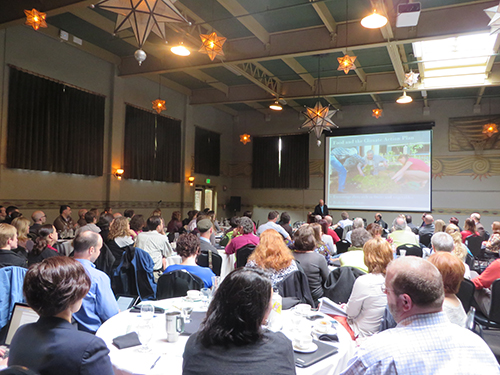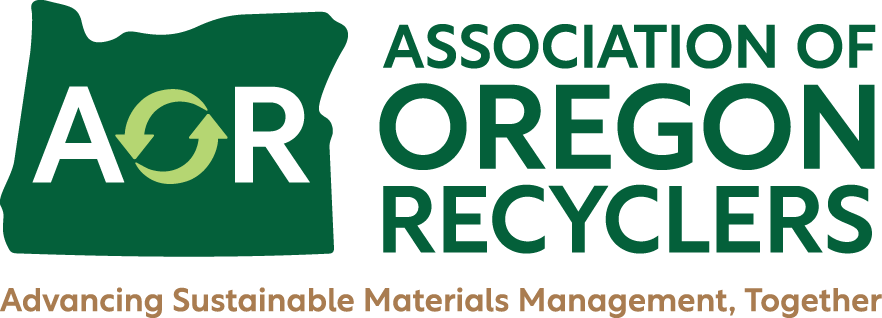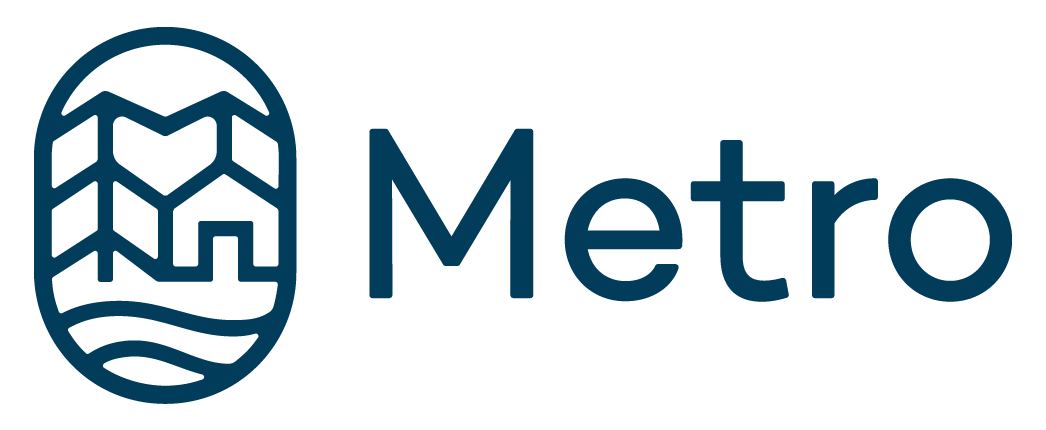Spring Forum Recap
 AOR held its spring forum “Climate Change and Food: Business Perspectives” on April 1 at the Kennedy School, and no foolin’, it was a great event. The nearly sold-out half-day forum presented both policy and business perspectives in managing food waste in light of its present and future impacts on climate change.
AOR held its spring forum “Climate Change and Food: Business Perspectives” on April 1 at the Kennedy School, and no foolin’, it was a great event. The nearly sold-out half-day forum presented both policy and business perspectives in managing food waste in light of its present and future impacts on climate change.
The event started after a networking lunch, and was moderated by Pete Chism, AOR Membership Chair. The first half explored the relationship between food and climate change, and started with Steve Cohen from the City of Portland presenting statistics on food waste and its climate impact, and how these helped shape the City’s Climate Action Plan.
Pete Pasterz from the Oregon DEQ discussed their efforts to evaluate the four food waste processing technologies currently used in Oregon and rank their relative performance environmental factors. As part of its efforts to research the highest and best use for selected high impact materials, DEQ commissioned a study in 2014 to evaluate the four food waste processing technologies currently used in Oregon and rank their relative performance on three environmental factors: 1) GHG impacts, 2) net energy production or use, and 3) soil health. The research evaluated existing international life cycle analyses of aerobic composting, anaerobic digestion, in-sink grinders, and landfill. The project team “harmonized” the results of the studies to allow for a more accurate comparison of their performance. The project included analysis of current uses of compost in Oregon and a qualitative review of soil condition impacts. The goal was to produce findings that would be useful in helping guide decisions in choosing systems to handle food waste that have the best environmental results.
The first half concluded with a presentation by Matt Korot describing an effort that Metro has undertaken to look at options for increasing the processing capacity available to manage the Portland region’s food scraps. He also provided an overview of how the food recovery system has developed in the region and the barriers to expanded capacity.
After a quick networking break, the second half of the forum focused on three business case studies on food purchasing, food donation, and food recovery and featured Janet Haugan, Director of Marketing for LeanPath, Katie Pearmine, Strategic Sourcing Manager for Oregon Food Bank, and Teak Wall, Sustainability Program Manager for New Seasons Market.
Janet's presention explored stories from operations that have leveraged the LeanPath System to change kitchen behaviors, spot inefficiencies, and successfully reduce food waste at its source. The presentation also challenged the audience to rethink the concept of “zero food waste,” focusing on prevention as the most preferred solution before defaulting to waste diversion efforts. Katie’s presentation focused on efforts the Oregon Food Bank is taking to prioritize food donations that are healthful and not just filling, and how to work directly with suppliers and donors to achieve that directive. Teak presented New Season’s response to Clark County and Metro's announcement that the region would transition to a food-only compost program in early 2014, and the challenges of creating and implementing a sustainable materials management program to respond to that change.
The event concluded with a happy hour in the Boiler Room, generously sponsored by long-time AOR Member Waste Connections, Inc.
Thank you to all who presented and attended. It was a wonderful educational event! All presentations are available on the AOR's forum page.
- Log in to post comments


